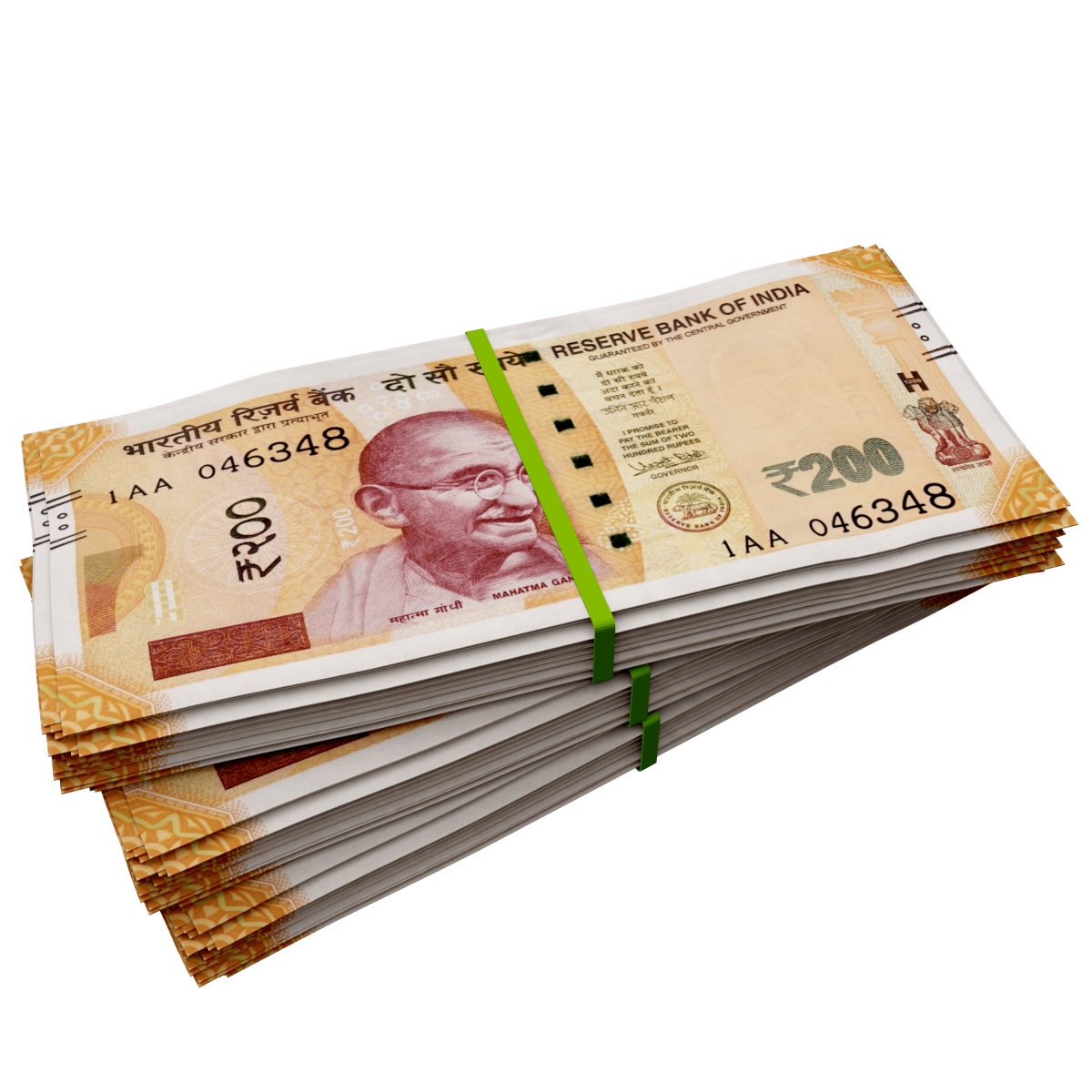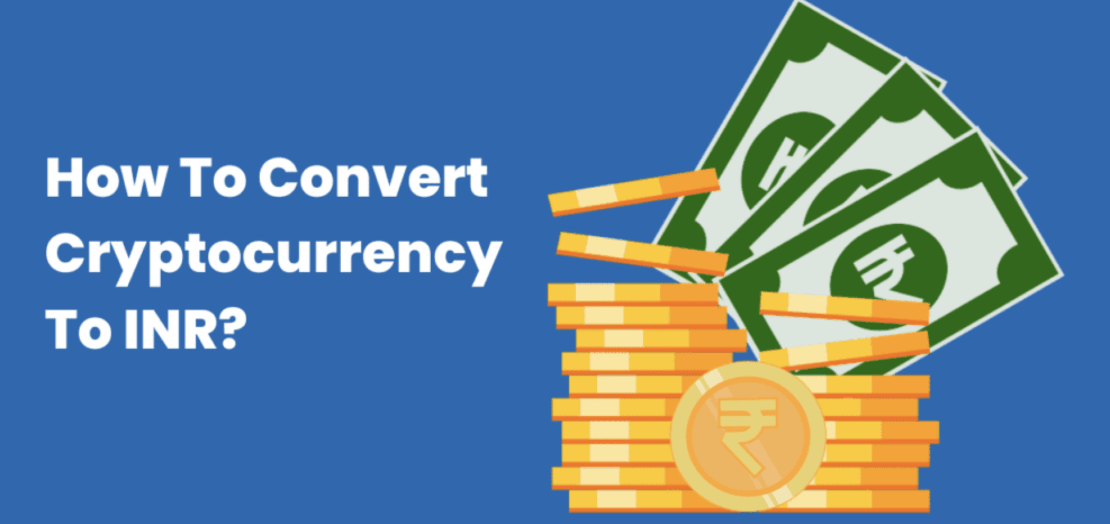Exchange Crypto to Cash in India - 2024 Platforms
In the dynamically evolving world of finance, cryptocurrencies have emerged as a revolutionary digital asset, capturing the imagination and interest of investors across the globe. India, with its vast population and burgeoning tech-savvy demographic, has not remained untouched by this phenomenon.
However, while many have ventured into buying and holding cryptocurrencies, the practical aspects of converting crypto to cash remain a subject shrouded in mystery for many. This guide aims to demystify the process, providing a clear, step-by-step approach to help you safely and effectively convert your cryptocurrency holdings into cash within the Indian financial landscape.


Choosing the Right Exchange Platform
Selecting a reliable and efficient exchange platform is critical. When choosing an exchange, consider factors such as security features, transaction fees, exchange rates, ease of use, and customer reviews. Popular exchanges of crypto to cash in India include WazirX, CoinDCX, and Unocoin. Each platform has its unique features and fee structures, so it’s advisable to conduct thorough research before making a decision.
Exchange Crypto to Cash in India
| Exchange | Rate | Cryptocurrencies | Withdrawal Time | Transaction Fees | Payment Methods | Links |
|---|---|---|---|---|---|---|
|
|
  
|
1-60 minutes |
0.0003 BTC |
   |
||
|
|
  
|
1-60 minutes |
0.2% |
 |
||
|
|
  
|
within 30 minutes |
floating |
 |
||
|
|
  
|
up to 24 hours |
0.025% |
 |
||
|
|
  
|
up to 2 working days |
1 EUR |
 |
||
|
|
  
|
within 1 hour |
30 USD |
 |
Step-by-Step Guide to Exchanging Crypto to Cash Instantly in India
- Registration and Verification: Sign up on your chosen exchange and complete the KYC (Know Your Customer) process. This typically involves submitting proof of identity and address.
- Depositing Cryptocurrency: Transfer the cryptocurrency you wish to convert from your wallet to the exchange wallet.
- Selling Cryptocurrency: Once the cryptocurrency is in your exchange wallet, sell Bitcoin or enother coin for the local currency (Indian rupees, in this case). The process will vary slightly depending on the exchange but generally involves placing a sell order at your desired price.
- Withdrawing Funds: After the sale is complete, you can withdraw the INR to your linked bank account. This process may take anywhere from a few hours to a couple of days, depending on the exchange’s policies and the bank involved. After, you can deposit cash to a bank card or PayPal if needed.
Legal and Regulatory Framework in India
The legal status of cryptocurrencies in India has been a topic of much debate and uncertainty. As of the latest updates, the Indian government has not banned cryptocurrencies outright, but it has also not given them a status of legal tender. The regulatory environment is still evolving, with the Reserve Bank of India (RBI) and other regulatory bodies closely monitoring the situation.
For individuals looking to convert cryptocurrencies to cash, it’s essential to stay updated with the latest regulatory changes. These regulations can impact the ease of conversion, the platforms that can be used, and the tax implications of such transactions.
Understanding Tax Implications
In India, income from the sale of cryptocurrencies is subject to taxation. The exact tax rate depends on whether the income is classified as business income or capital gains. Short-term capital gains (if the asset is held for less than 36 months) are taxed according to the individual’s income tax slab, while long-term gains (for assets held for more than 36 months) are taxed at a flat rate of 20% with indexation benefits.
It’s crucial to maintain detailed records of all transactions, as these will be required for tax calculations. Consulting with a tax professional who is versed in cryptocurrency regulations is advisable for accurate compliance when you need to pay taxes.
Alternative Methods to Convert Crypto to Indian Rupees

Peer-to-Peer (P2P) Platforms
These peer-to-peer platforms connect buyers and sellers directly. They offer a more personalized transaction but come with increased risk. It’s essential to use a reputable peer-to-peer platform and take precautions like verifying the buyer’s history and using escrow services offered by the platform. Plus, a peer-to-peer network can help you exchange crypto to a different payment method like a bank card or PayPal.
Crypto ATMs
If available in your area, these can be a quick way to convert small amounts of crypto assets into cash. However, they may have higher transaction fees and limits on the amount you can withdraw. Currently, there are 2 ATMs in India, Delhi to sell crypto – at Workly Nehru Place and MyOffiz Co-Working Space.
Over-the-counter (OTC) Trades
For large transactions, OTC trades can be a viable option. These are private deals with another party, often facilitated by a broker. OTC trades are less transparent and can carry higher risks, so they should be approached with caution.
Crypto Debit Card
Crypto debit cards are a groundbreaking development in the fusion of traditional finance and the digital currency realm, offering a practical, user-friendly solution for using cryptocurrencies in everyday transactions.
They seamlessly convert digital assets into fiat currency, enabling purchases anywhere that standard debit cards are accepted. However, users should be mindful of the volatility of cryptocurrencies, potential tax implications, and varying regulatory landscapes.
Features to Evaluate a Service to Exchange Bitcoin into Cash

Availability in Your Location
Verify that the exchange operates in your specific city or region in India. Not all crypto exchanges have services across the entire country, and some might be concentrated in major urban areas like Mumbai or Bengaluru. This is particularly vital if you are looking for options like local cash pickups or physical branches for in-person assistance.
Check if the exchange provides comprehensive services in your location, including customer support. Some exchanges might offer limited services in certain areas, impacting your ability to efficiently manage transactions.
Examine whether the exchange has partnerships with local banks or financial institutions in your area. This can facilitate smoother and faster bank transfers, and might also offer additional security and convenience in transactions.
Exchange Fees and Charges
Check how the exchange charges for transactions and withdrawals. This could include flat fees (a set amount regardless of the transaction size) or percentage-based fees (which vary depending on the transaction amount). Additionally, some exchanges implement different fee structures for various withdrawal methods.
High fees can significantly reduce the amount of cash you receive from your transaction. It’s crucial to calculate the cost-effectiveness, especially for frequent or large transactions.
Withdrawal Times and Limits
Check how long it takes from the moment you sell your cryptocurrency until the cash is available in your account or for pickup. Times can range from instant to several days, depending on the exchange’s processing speed and the withdrawal method.
Make sure the withdrawal limits, the caps on the amount of money you can withdraw within a certain period (daily, weekly, monthly), are enough for your transaction. Understanding these limits is vital if you’re dealing with large sums, as it could affect your liquidity and financial planning.
15 Indian Cities Where You Can Exchange Crypto to Cash
- Mumbai, Maharashtra: Known as the financial capital of India, Mumbai hosts a vibrant crypto community and several leading crypto exchanges.
- Bengaluru, Karnataka: As the tech hub of India, Bengaluru has a significant number of tech-savvy individuals and startups involved in the crypto space.
- New Delhi: The capital city is home to many fintech startups and offers numerous options for crypto transactions.
- Hyderabad, Telangana: With its growing IT sector, Hyderabad has seen a rise in cryptocurrency adoption and exchange facilities.
- Pune, Maharashtra: Pune’s educational and tech scene fosters a community keen on exploring and using digital currencies.
- Chennai, Tamil Nadu: Chennai’s emerging tech landscape makes it a suitable location for crypto exchanges and blockchain startups.
- Kolkata, West Bengal: As a major commercial and financial hub in East India, Kolkata is increasingly participating in the crypto revolution.
- Ahmedabad, Gujarat: Known for its business acumen, Ahmedabad hosts a growing number of crypto investors and exchange platforms.
- Surat, Gujarat: With its booming economy, Surat is catching up fast in the world of digital currencies and exchanges.
- Jaipur, Rajasthan: Jaipur’s evolving tech and startup ecosystem is becoming more conducive to crypto investments and exchanges.
- Lucknow, Uttar Pradesh: As the largest city in Uttar Pradesh, Lucknow is witnessing a growing interest in cryptocurrencies and related services.
- Kochi, Kerala: Kochi’s IT sector and digital literacy rate make it a promising city for crypto exchange services.
- Indore, Madhya Pradesh: Indore’s growing economy and digital infrastructure are supportive of cryptocurrency exchanges and trading.
- Bhopal, Madhya Pradesh: Bhopal is emerging as a new center for digital finance, including cryptocurrency transactions.
- Visakhapatnam, Andhra Pradesh: Often referred to as Vizag, this city is rapidly growing its tech sector, attracting crypto investors and exchanges.


